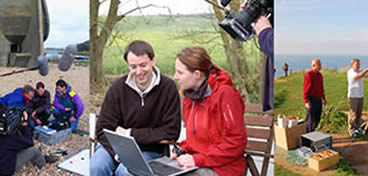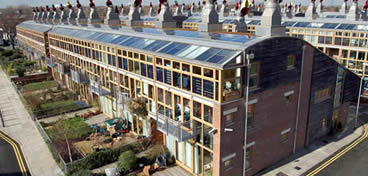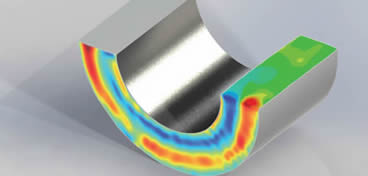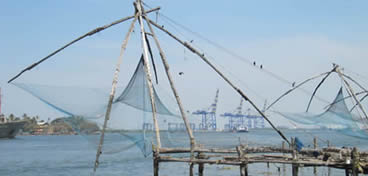Research
The research undertaken within the School is diverse and contributes to disciplinary, inter-disciplinary, multi-disciplinary, and trans-disciplinary projects and outcomes both nationally and internationally. Individual academics and research groups within the School are internationally recognised in their respective fields. While some research activities are laboratory-based, using equipment and infrastructure to conduct experiments, others apply methods from the social sciences and humanities.
The School contributed to six Units of Assessment in REF2021. These were B7 (Earth Systems and Environmental Sciences), B12 (Engineering), C22 (Anthropology and Development Studies), C23 (Education), D32 (Art and Design: History, Practice, and Theory), and D33 (Music, Drama, Dance and Performing Arts). In these six Units of Assessment, an average of 82% of the University's research was rated internationally excellent or world-leading in terms of originality, significance, and rigour.
The range of subject expertise within the School is broad and reflects the broad curriculum that our academic research underpins (in engineering, design, environment, technology management, and systems thinking). A strength from this diverse expertise is our sustained success in obtaining funding from a wide range of sources including AHRC, EPSRC, ERC, ESA, ESRC, GCRF, Innovate UK, NERC, Royal Society, STFC, and UKSA.
The School cultivates a collegiate research environment, where research collaborations across disciplinary boundaries are encouraged. Indeed, much external bidding is dependent on self-organised initiatives to re-configure research expertise from within and outside the School appropriately. This ability to adapt also shows in the cross-disciplinary research ideas and supervision collaborations for doctoral studentships.
Our research expertise also contributes to a variety of knowledge exchange, outreach and international development projects with national and international partners from most sectors of the economy.
Within the School staff variously contribute to the areas of research activity listed here, some of which involve staff from other schools and faculties.
Academic staff
- Director of Research
Dr James Bowen















